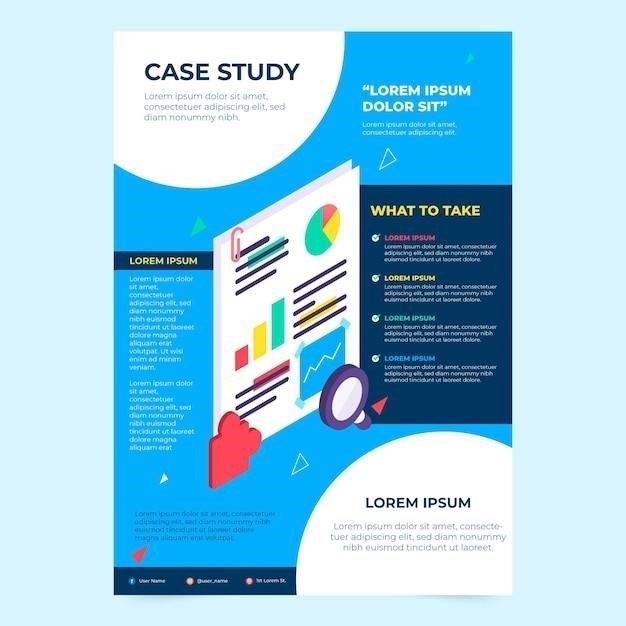This comprehensive guide will provide you with everything you need to know to pass the CISSP exam in 2023. We’ll cover the importance of the certification, the benefits of earning it, the exam overview, the exam domains, how to prepare for the exam, and the best study resources. We’ll also provide you with some tips for passing the exam on your first try.
Introduction
The Certified Information Systems Security Professional (CISSP) is a globally recognized certification that validates your knowledge and skills in information security. Earning the CISSP demonstrates your expertise in the field, making you a valuable asset to any organization. This study guide is designed to help you prepare for the CISSP exam and achieve your goal of becoming a CISSP-certified professional.
The CISSP exam is a challenging one, but with the right preparation, you can succeed. This study guide provides a comprehensive overview of the CISSP exam, including the exam domains, the exam format, and the best study materials. We’ll also offer tips and strategies for passing the exam on your first try.
Whether you’re a seasoned IT professional or just starting your journey in the field, this study guide will equip you with the knowledge and confidence you need to pass the CISSP exam and advance your career in information security.
Why the CISSP is Important
In today’s digital world, information security is more crucial than ever. Organizations of all sizes are facing a growing number of cyber threats, making it essential to have skilled professionals who can protect their sensitive data and systems. The CISSP certification is a highly sought-after credential that demonstrates your expertise in information security, making you a valuable asset to any organization.
Earning the CISSP credential signifies that you possess a deep understanding of information security principles, practices, and technologies. It validates your ability to design, implement, and manage comprehensive security programs, ensuring the confidentiality, integrity, and availability of critical data and systems.
Beyond technical skills, the CISSP certification also demonstrates your commitment to professional ethics and best practices. It reflects your understanding of the legal and regulatory landscape surrounding information security, enabling you to make informed decisions and navigate complex security challenges effectively.
Benefits of Earning the CISSP

The CISSP certification comes with a wide range of benefits that can significantly enhance your career trajectory and earning potential. It opens doors to various opportunities and positions within the cybersecurity domain, showcasing your expertise and commitment to the field.
One of the most significant benefits of earning the CISSP is the increased salary potential. Organizations recognize the value of certified professionals and are willing to invest in their talent. A CISSP certification can lead to a substantial salary increase, making it a worthwhile investment in your professional development.
Moreover, the CISSP certification enhances your credibility and recognition within the industry. Holding this globally recognized credential demonstrates your knowledge and skills to potential employers, making you a highly sought-after candidate for leadership roles. It also opens doors to opportunities in various industries, as cybersecurity is a critical concern for businesses across different sectors.
The CISSP certification also provides you with access to a global network of cybersecurity professionals. You can connect with other certified individuals, share best practices, and stay updated on industry trends, fostering professional growth and collaboration.
CISSP Exam Overview
The CISSP exam is a challenging but rewarding test that assesses your knowledge and understanding of information security principles and practices. It is a globally recognized credential that demonstrates your expertise in the field, opening doors to various opportunities and career advancements. The exam is administered by the International Information Systems Security Certification Consortium (ISC)².
The CISSP exam consists of 250 multiple-choice questions, with a passing score of 700 out of 1000. You have 3 hours to complete the exam, which is offered in both English and Japanese languages. The exam covers eight domains, each focusing on a specific area of information security.
Before taking the exam, you need to meet the eligibility requirements, which include having at least five years of professional work experience in information security. You can also obtain the Associate of (ISC)² designation, which allows you to sit for the exam without meeting the work experience requirement, but you must obtain the full CISSP certification within six years of achieving the Associate designation.
CISSP Exam Domains
The CISSP exam is divided into eight domains, each covering a specific area of information security. These domains represent the core knowledge and skills expected of a certified information systems security professional. The eight domains and their respective weightings in the exam are as follows⁚
- Security and Risk Management (15%)⁚ This domain focuses on the identification, assessment, and mitigation of security risks. It covers topics such as risk management methodologies, threat modeling, vulnerability analysis, and risk response strategies.
- Asset Security (10%)⁚ This domain covers the protection of organizational assets, including data, systems, applications, and infrastructure. It includes topics such as asset identification, classification, and valuation, as well as access control mechanisms and data security measures.
- Security Engineering (13%)⁚ This domain focuses on the design, implementation, and maintenance of secure systems. It covers topics such as cryptography, secure coding practices, network security, and system hardening.
- Communication and Network Security (14%)⁚ This domain covers the security of communication channels and networks. It includes topics such as network protocols, firewalls, intrusion detection and prevention systems, and secure communication protocols.
- Identity and Access Management (11%)⁚ This domain focuses on the management of user identities and access privileges. It covers topics such as authentication, authorization, single sign-on, and identity management systems.
- Security Assessment and Testing (12%)⁚ This domain covers the assessment and testing of security controls. It includes topics such as penetration testing, vulnerability scanning, and security audits.
- Software Development Security (10%)⁚ This domain focuses on the security of software development processes. It covers topics such as secure coding practices, code reviews, and software security testing.
- Incident Response and Recovery (15%)⁚ This domain covers the response to security incidents and the recovery of systems. It includes topics such as incident response planning, incident handling, and disaster recovery.
Understanding these domains and their respective weightings is crucial for effective exam preparation. By focusing on each domain and acquiring a strong understanding of its key concepts, you can increase your chances of success in the CISSP exam.
Preparing for the CISSP Exam
Preparing for the CISSP exam requires a dedicated and structured approach. It’s a challenging exam, but with the right strategy and resources, you can increase your chances of success. Here’s a breakdown of key steps to guide your preparation⁚
- Understand the Exam Format⁚ Familiarize yourself with the exam format, including the number of questions, time limit, question types, and passing score. This will help you tailor your study plan to the specific requirements of the exam.
- Review the CISSP Exam Domains⁚ Thoroughly study each of the eight CISSP domains, focusing on the core concepts and principles within each area. Develop a strong understanding of the key topics and their practical applications.
- Choose Study Materials⁚ Select high-quality study materials that align with the CISSP exam objectives. This could include books, online courses, practice exams, and study guides.
- Create a Study Schedule⁚ Develop a realistic study plan that allocates sufficient time for each domain. Break down your study sessions into manageable chunks and stick to a consistent schedule.
- Engage in Active Learning⁚ Don’t just passively read study materials. Engage in active learning techniques such as summarizing key concepts, creating flashcards, and participating in online forums or study groups.
- Practice Exam Questions⁚ Regularly take practice exams to assess your knowledge and identify areas that need further review. Analyze your performance and focus on strengthening your weaknesses.
- Seek Mentorship or Guidance⁚ Consider connecting with experienced security professionals or CISSP certified individuals for mentorship or guidance. They can provide valuable insights and support throughout your preparation journey.
By following these steps, you can build a solid foundation of knowledge and develop the necessary skills to confidently tackle the CISSP exam.
CISSP Study Guide Resources
Navigating the vast resources available for CISSP preparation can be overwhelming. To help you find the best study materials, here’s a curated list of resources that cover various learning styles and preferences.
- CISSP All-in-One Exam Guide⁚ This comprehensive book, currently in its Ninth Edition, provides a detailed overview of all eight CISSP domains. It’s a valuable resource for reinforcing core concepts and providing practical examples.
- Online Courses⁚ Platforms like Udemy, Coursera, and Pluralsight offer online courses specifically designed for CISSP exam preparation. These courses provide interactive lessons, quizzes, and practice exams to enhance your understanding.
- Practice Exams⁚ Numerous websites and study guides offer CISSP practice exams that simulate the real exam experience. These practice exams help you identify areas where you need to focus your studies and build your confidence.
- Study Groups and Forums⁚ Joining study groups or online forums can provide a valuable platform for interaction with other CISSP aspirants. You can share knowledge, discuss challenging topics, and motivate each other during your preparation journey.
- Free CISSP Study Guide PDFs⁚ Several websites offer free CISSP study guide PDFs that cover specific domains or provide summaries of key concepts. These PDFs can be a useful supplement to other study materials.
Remember to choose resources that suit your learning style and preferences. Combine different study materials to create a comprehensive and engaging learning experience.
Free CISSP Study Guide PDFs
The internet is a treasure trove of free resources for CISSP exam preparation, including numerous study guide PDFs. These guides often provide concise summaries of key concepts, domain-specific information, and practice questions. While they may not cover the entire syllabus in detail, they can be valuable supplements to other study materials and offer a cost-effective way to supplement your learning.
Here are some examples of free CISSP study guide PDFs you can find online⁚
- “CISSP Domain 2 Study Guide” by ThorTeaches.com⁚ This PDF focuses on Domain 2, Information Lifecycle Management, covering data classification, ownership roles, and data security. It provides a comprehensive overview of the key concepts and principles within this domain;
- “2023 CISSP Domain 8 Study Guide” by ThorTeaches.com⁚ This guide dives into Domain 8, Security Operations, covering incident response, vulnerability management, and security monitoring. It offers practical insights and examples to enhance your understanding of these critical security functions.
- “CISSP Study Guide” by Leonard Carlson⁚ This free PDF provides a general overview of the CISSP exam, covering key concepts across different domains. It also includes valuable tips for exam preparation and success strategies.
Remember, free resources can be a valuable addition to your study plan, but they should not be your sole source of information. It’s essential to supplement them with comprehensive study guides, practice exams, and other learning materials to ensure a thorough understanding of the CISSP syllabus.
Recommended CISSP Study Materials
Choosing the right study materials is crucial for success on the CISSP exam. While free resources can be helpful, investing in high-quality study materials can provide a more comprehensive and structured approach to your preparation. These materials often include detailed explanations, practice questions, and strategies for tackling the exam. Here are some recommended CISSP study materials⁚

- “CISSP All-in-One Exam Guide” by Shon Harris (Ninth Edition)⁚ This comprehensive guide is considered a gold standard for CISSP preparation. It covers all eight domains in detail, providing in-depth explanations, real-world examples, and practice questions.
- “Official (ISC)² CISSP Certified Information Systems Security Professional Study Guide” by Eric Conrad⁚ This official study guide is written by (ISC)² experts and provides a comprehensive overview of the CISSP exam objectives. It includes practice questions, exam strategies, and a detailed breakdown of each domain.
- “CISSP Practice Exams” by Sybex⁚ These practice exams offer realistic simulations of the actual CISSP exam. They provide valuable feedback on your strengths and weaknesses, helping you identify areas that require further study.
- “CISSP Study Guide” by Mike Chapple⁚ This study guide is known for its clear and concise explanations, making complex concepts easier to understand. It covers all eight domains in depth and includes practice questions and exam-taking strategies.
When selecting study materials, consider your learning style, budget, and the time you have available for preparation. It’s also recommended to explore online resources, such as online courses, video tutorials, and discussion forums, to supplement your study materials and enhance your learning experience.
Tips for Passing the CISSP Exam
The CISSP exam is a challenging test that requires thorough preparation and effective test-taking strategies. Here are some tips to increase your chances of success⁚
- Start Early and Create a Study Plan⁚ The CISSP exam is comprehensive, so don’t wait until the last minute to start studying. Create a realistic study plan that allows you to cover all eight domains thoroughly. Allocate sufficient time for each domain, and consider taking breaks to avoid burnout.
- Understand the Exam Format and Objectives⁚ Familiarize yourself with the exam format, including the number of questions, time limit, and passing score. Study the exam objectives to ensure you cover all the required knowledge areas.
- Practice, Practice, Practice⁚ Take advantage of practice exams and questions to reinforce your learning and get accustomed to the exam format. Analyze your mistakes and identify areas where you need to improve.
- Master the Art of Time Management⁚ The CISSP exam is time-limited, so it’s crucial to manage your time effectively. Learn to pace yourself and avoid spending too much time on any single question. If you’re unsure of an answer, mark it and come back later.
- Stay Calm and Focused⁚ The CISSP exam can be stressful, so it’s essential to stay calm and focused during the exam. Take deep breaths, and avoid rushing through questions. Trust your preparation and your ability to succeed.
Remember, passing the CISSP exam is a significant accomplishment. By following these tips and putting in the hard work, you can increase your chances of achieving your goal.
Earning the CISSP certification is a significant achievement that demonstrates your expertise in information security. It can open doors to new career opportunities, increase your earning potential, and enhance your credibility within the industry. By utilizing the resources and study tips outlined in this guide, you can effectively prepare for the exam and confidently pursue this valuable credential.
Remember, the CISSP exam is a journey that requires dedication, persistence, and a strong understanding of information security principles. As you embark on your preparation, embrace the challenge and utilize the wealth of resources available. Trust in your abilities, and don’t hesitate to seek support from fellow professionals and mentors.
With consistent effort and strategic planning, you can successfully navigate the CISSP exam and join the ranks of highly skilled cybersecurity professionals. The journey may be demanding, but the rewards of achieving this globally recognized certification are well worth the investment.



